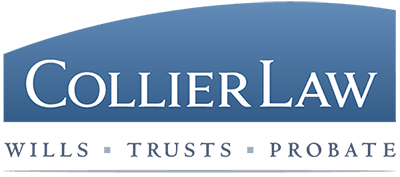Consideraciones clave para seleccionar al tutor o curador ideal
Para elegir bien tutor o curador Para ayudar a su familiar, empiece por evaluar su capacidad para gestionar sus asuntos e identificar posibles deterioros que requieran intervención. Explore alternativas no judiciales como los poderes notariales y la toma de decisiones asistida. Evalúe a los candidatos en función de su fiabilidad, sus habilidades financieras y la solidez de su relación con su ser querido. Explique claramente las responsabilidades legales y éticas que conlleva y asegúrese de que los candidatos se comprometen a informar continuamente y a actuar con transparencia. Evalúe los vínculos afectivos y la voluntad de proporcionar apoyo físico y emocional. Comprender las implicaciones financieras y evaluar las cualificaciones puede tener un gran impacto en su decisión. Más información sobre cómo garantizar los mejores cuidados.
Determinación de la necesidad de un curador

Con frecuencia, las familias se enfrentan a la difícil decisión de determinar cuándo se necesita un curador para un ser querido. Como familiar, debe evaluar si la persona puede gestionar sus asuntos financieros.
Una persona incapacitada, quizás debido a un deterioro cognitivo o a discapacidades físicas, puede necesitar la autoridad legal de un curador para salvaguardar sus bienes. Comience por consultar con los profesionales de Collier Law para evaluar la capacidad de la persona, asegurándose de que las decisiones sean informadas y exhaustivas.
Normalmente tendrá que presentar una petición ante el tribunal, que supervisará el proceso y exigirá pruebas, como evaluaciones médicas. La elección de un tutor competente y digno de confianza es vital para evitar la mala gestión o la explotación financiera, garantizando que el interés superior de la persona sea siempre prioritario y esté protegido mediante una supervisión judicial continua.
Comparación de alternativas
Al considerar alternativas a la tutela o curatela, es esencial sopesar opciones que preserven la autonomía de la persona al tiempo que le proporcionan el apoyo necesario.
Los poderes notariales duraderos son una alternativa práctica que permite a personas de confianza tomar decisiones financieras y sanitarias sin intervención judicial. Este enfoque simplifica la toma de decisiones, garantizando que las necesidades de atención personal de su ser querido se satisfagan de manera eficiente.
La toma de decisiones con apoyo es otra alternativa, que fomenta la independencia permitiendo a las personas trabajar con personas de confianza para tomar decisiones informadas. Este método respeta la dignidad y fomenta la autosuficiencia.
Además, los fideicomisos para necesidades especiales pueden proteger los activos y mantener la elegibilidad para las prestaciones, eliminando potencialmente la necesidad de una curatela.
Explore los recursos de la comunidad y las organizaciones de defensa para conocer mejor estas alternativas y garantizar una elección compasiva e informada para su familiar.
Evaluación de posibles candidatos
Seleccionar al candidato adecuado para el papel de tutor o curador es una decisión que exige una evaluación meticulosa y una profunda reflexión.
Comience por evaluar la capacidad de cada candidato potencial para gestionar las responsabilidades de la tutela, que incluyen la toma de decisiones críticas en materia sanitaria y financiera.
Tenga en cuenta su relación con su familiar, ya que un vínculo emocional fuerte puede aumentar la confianza y la comprensión en el proceso de toma de decisiones.
Asegúrese de que tienen tiempo y voluntad de comprometerse, ya que estas funciones suelen requerir una implicación importante.
Revise su estabilidad financiera y sus dotes organizativas para asegurarse de que pueden manejar los presupuestos con eficacia.
Realice comprobaciones exhaustivas de los antecedentes para descartar cualquier problema legal o historial de mala gestión.
El bienestar futuro de su familia depende de estas decisiones cuidadosas e informadas.
Debatir las responsabilidades con los candidatos
Un paso fundamental en la elección de un tutor o curador es mantener una conversación abierta y exhaustiva sobre las responsabilidades que conlleva.
Empiece por definir claramente las responsabilidades, como la toma de decisiones en materia de asistencia sanitaria, régimen de vida y gestión financiera. Es fundamental explicar las obligaciones legales, como llevar un registro preciso y rendir cuentas anualmente al tribunal.
Haga hincapié en que actuar en el mejor interés de su familiar es primordial, lo que exige transparencia y responsabilidad. Hable del compromiso de tiempo y de la importancia de informar periódicamente y evaluar las necesidades de la persona.
Anime a los candidatos a hablar abiertamente sobre posibles conflictos de intereses o problemas emocionales. De este modo se asegurará de que están plenamente preparados y comprometidos con el puesto, salvaguardando el bienestar y el futuro de su familiar.
Evaluación de competencias y cualificaciones
En el proceso de evaluación de las aptitudes y cualificaciones de un posible tutor o curador, es fundamental dar prioridad a los candidatos que posean sólidos conocimientos de gestión financiera y contabilidad.
Esto garantiza una supervisión eficaz de los asuntos financieros vitales para el bienestar de su familiar. Esto es lo que debe buscar:
- Perspicacia financiera: Los candidatos deben demostrar experiencia en la gestión de asuntos financieros, crucial para tomar decisiones acertadas en funciones de curatela y tutela.
- Conocimientos jurídicos: Es esencial estar familiarizado con los procesos legales relacionados con la tutela legal.
- Habilidades de comunicación: La comunicación eficaz y la empatía son vitales para tomar decisiones familiares delicadas.
- Fiabilidad e integridad: Realice una comprobación exhaustiva de sus antecedentes para asegurarse de que puede confiarles los intereses de su familiar.
Tenga en cuenta estos factores para tomar decisiones con conocimiento de causa.
Considerar el apoyo emocional y físico
Aunque evaluar las aptitudes y cualificaciones ayuda a garantizar una gestión eficaz de los asuntos financieros, es igualmente importante centrarse en el apoyo emocional y físico que puede proporcionar un posible tutor o curador.
Empiece por identificar candidatos con un fuerte vínculo emocional con su familiar, ya que esto fomenta la confianza y un entorno estable. Deben comprender las dificultades específicas a las que se enfrenta tu familiar y poseer la empatía necesaria para atender sus necesidades físicas y de apoyo emocional.
Busque a alguien que pueda ser un defensor eficaz, que garantice que se atienden las necesidades de su familiar y se protegen sus derechos.
La comunicación periódica con el tutor o curador elegido es crucial, ya que ayuda a mantener una relación de apoyo y garantiza que su familiar está prosperando a su cuidado.
Comprender las implicaciones financieras
Un aspecto crucial del proceso de toma de decisiones consiste en tener en cuenta las implicaciones financieras de la elección de un tutor o curador.
Tendrás que tener en cuenta varios costes y cómo afectan a los recursos financieros. Aquí tienes un desglose de los posibles gastos:
- Tasas legales: El nombramiento de un curador o tutor suele conllevar importantes honorarios legales y gastos de tramitación judicial.
- Gastos administrativos: Estos costes continuos proceden del mantenimiento de registros financieros detallados y del cumplimiento de los requisitos contables anuales.
- Honorarios profesionales de curatela: Los curadores profesionales pueden cobrar en función del tamaño del patrimonio o una tarifa por hora, lo que repercute en los recursos financieros.
- Requisitos de fianza: Muchos estados exigen que los curadores y tutores tengan fianzas, lo que añade otro nivel de gastos para garantizar el cumplimiento y la rendición de cuentas.
Comprender estos costes le ayudará a tomar decisiones informadas sobre la tutela y la curatela.
Collier Law puede ayudarle con sus necesidades de tutela y curatela
La elección de un tutor o curador es una decisión importante, y Collier Law en Salem está aquí para proporcionar orientación de expertos en cada paso del camino. Entendemos las complejidades involucradas en la designación de alguien para manejar el cuidado personal o asuntos financieros de su ser querido.
Nuestros abogados experimentados ofrecen asesoramiento jurídico detallado para ayudar a navegar estas situaciones delicadas, asegurando que el tutor o curador designado está bien preparado para su papel. Si usted está planeando evitar los procedimientos judiciales o necesita ayuda porque la participación de la corte es necesaria, nuestro equipo se dedica a salvaguardar el bienestar y los activos de su familiar.
Con un enfoque en el servicio compasivo y personalizado, Collier Law asegura que las necesidades de su ser querido se cumplan con el máximo cuidado y profesionalismo.
Servicios jurídicos que ofrecemos
- Administración de fideicomisos en Salem OR: La administración de fideicomisos en Salem, OR implica la gestión y distribución de activos de acuerdo con los términos de un fideicomiso, asegurando que el fiduciario cumpla con sus deberes fiduciarios. Este servicio a menudo incluye el manejo de mantenimiento de registros, declaraciones de impuestos, y la comunicación con los beneficiarios para asegurar un proceso de administración suave y eficiente.
- Abogado de Testamentos y Fideicomisos en Salem OR: Un Abogado de Testamentos y Fideicomisos en Salem, OR proporciona orientación legal en la redacción y ejecución de testamentos y fideicomisos, asegurando que los activos de sus clientes estén protegidos y distribuidos de acuerdo a sus deseos. Ofrecen asesoramiento personalizado adaptado a las circunstancias únicas de cada cliente, ayudando a navegar complejas implicaciones legales y fiscales.
- Abogado Testamentario en Salem OR: Un abogado de sucesiones en Salem, OR ayuda a los clientes en la navegación por el proceso de sucesión, lo que implica la validación de testamentos, liquidación de deudas, y la distribución de activos a los herederos legítimos. Su experiencia ayuda a agilizar los procedimientos testamentarios a menudo complejos y lentos, garantizando el cumplimiento de las leyes estatales.
- Abogado de Planificación Patrimonial en Salem OR: Un abogado de planificación patrimonial en Salem, OR se especializa en la creación de estrategias integrales para gestionar y distribuir el patrimonio de un individuo, con el objetivo de minimizar las obligaciones fiscales y los desafíos legales. Trabajan en estrecha colaboración con los clientes para desarrollar planes personalizados que reflejen sus objetivos y protejan su legado para las generaciones futuras.
- Fideicomisos Abogado en Salem OR: Un abogado de fideicomisos en Salem, OR se centra en la creación y gestión de fideicomisos, ofreciendo experiencia legal para asegurar que los activos estén protegidos y los intereses de los beneficiarios estén salvaguardados. Sus servicios incluyen la redacción de documentos fiduciarios, asesoramiento sobre el mejor tipo de fideicomiso para necesidades específicas, y garantizar el cumplimiento de las leyes estatales y federales.
Ryan W. Collier

Ryan W. Collier es un reputado abogado especializado en planificación patrimonial y sucesiones con sede en Salem, Oregón, con licencia para ejercer tanto en Oregón como en Washington. Su práctica se especializa en asesorar a clientes sobre planificación patrimonial, administración de sucesiones y fideicomisos, y responsabilidad fiduciaria, con un enfoque particular en ayudar a los clientes a minimizar los impuestos sobre el patrimonio y maximizar el valor transmitido a sus herederos. La amplia experiencia de Ryan en planificación financiera le proporciona una ventaja única a la hora de ofrecer soluciones jurídicas a medida que dan prioridad a la privacidad, la seguridad y la tranquilidad. Sus excepcionales conocimientos jurídicos le han valido la calificación AV Preeminent™ de Martindale-Hubbell, el más alto honor disponible, lo que refleja su experiencia en fideicomisos, sucesiones y derecho sucesorio. Ryan también fue reconocido por la revista Super Lawyers como un Oregon Rising Star en 2010 y 2011, un premio otorgado a menos del cinco por ciento de los abogados en el estado.
Más allá de su carrera jurídica, Ryan está profundamente involucrado en su comunidad, contribuyendo activamente a una variedad de organizaciones locales. Ha formado parte de las juntas de la Salem Leadership Foundation y la Salem Foundation, donde actualmente ocupa el cargo de presidente de la junta. El compromiso de Ryan con el servicio a la comunidad le valió un puesto en la lista de los "20 mejores menores de 40 años" del Statesman Journal en 2010 por sus importantes contribuciones a Salem. También es un ávido voluntario de los Boy Scouts of America, donde ha recibido el Premio al Mérito del Distrito por su excepcional servicio a la juventud. La pasión de Ryan por el servicio se extiende a su papel como profesor adjunto en la Facultad de Derecho de la Universidad de Willamette y a su trabajo como mentor en el programa de la facultad de Derecho. Fuera de sus obligaciones profesionales y comunitarias, Ryan disfruta pasando tiempo de calidad con su esposa, Holly, y sus tres hijos adolescentes, apreciando la belleza natural del noroeste del Pacífico y la comunidad unida de Salem.
¿Busca un abogado con experiencia en planificación patrimonial?
No espere más, programe su consulta con Collier Law hoy mismo.

